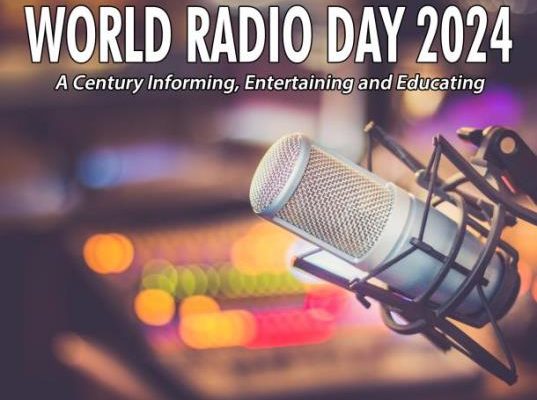The Centre for Media and Society (CEMESO) joins the rest of the world on the occasion of the World Radio Day 2024, to celebrate the radio broadcasting medium and calls for an improved environment of freedom, pluralism and sustainability.
In a statement issued in Lagos, Dr. Akin Akingbulu, Executive Director, Centre for Media and Society, said, “We wish to identify with this year’s theme which is ‘Radio: A Century of Informing Entertaining and Educating. As a medium of communication, radio has played important roles within national and international contexts in such governance and development areas as electoral mobilisation, health, agriculture, conflict management and peace-building among others.
“We observe that radio continues to be a resilient medium in Nigeria even as it passed through various phases of development: first, as a component of British colonial broadcasting service in the 1930s; as government monopoly for over three decades after the country’s political independence in 1960 and as a multi-player platform since the early 1990s.”
The statement further highlighted that the liberalization of the broadcasting sector in the past three decades has witnessed the entry and participation in radio, of new sections of the population such as businesses, grassroot communities and educational institutions.
“The growth in plurality has been accompanied by innovations in programming and engagement of issues which appeal to the diverse tastes of the population. However, as we celebrate the big strides that radio has made in Nigeria, it is important to note that some key challenges have emerged.
“First, the state of the freedom of the journalist in radio broadcasting remains worrisome. There continues to be censorship, particularly in the state-owned broadcasting outlets. The safety of journalists continues to be violated in the line of duty, including during coverage of the nation’s electoral processes.
“Recent threats about the passage of restrictive legislations by top officials in the executive and legislative branches of government suggest that difficult times are ahead for radio broadcasting professionals in the digital era.”
The media body called on the government at the federal and state levels to provide an enabling environment for radio broadcasters by removing obstacles to editorial freedom in the outlets that they control; the security agencies to prioritise the safety of journalists in their operational procedures; and the National Assembly to reform old laws which impede media freedom while enacting new ones which align with international standards.
“Second, the declining state of the economy has adversely affected media economics and management in various ways. Cost of broadcasting equipment mostly sourced from outside the country and local overheads such as energy costs have become unbearable for media managers.
“We urge the Federal Government to consider support to the industry in such areas as duty waivers for broadcasting equipment and creative funding mechanisms for broadcasting in the reform of the sector.
“Third, the widely commended level of pluralism achieved in the broadcasting sector with the introduction of community radios is experiencing a downturn. The subsector is now receiving scanty attention in licensing exercises; the regulatory framework has not demonstrated any substantial consideration of the sub-sector’s needs; while certain interests with no community development objectives, are investing in hijacking the licenses meant for this subsector.
“In this context, we welcome the announcement by the Federal Government to carry out reforms and strengthen the community broadcasting sector. This step is long overdue. We implore the government to undertake the reforms in a participatory and comprehensive manner.
“Fourth, the quantitative expansion in the radio broadcasting sector, in terms of increase in the quantity of licenses, outlets and personnel, does not appear to be growing in alignment with availability of digital sector skills and facilities. Development of specialized digital skills in the sector has become urgent.”
CEMESO also urged the Federal Government to invest vigorously in development of digital skills. It noted that the way to go is for the government to implement what it articulated in its White Paper on Switch-Over to Digital Broadcasting: merge its training structures currently domiciled in the NTA and FRCN into one multi-campus national broadcasting training institution, to provide training opportunities to the large number of professionals in broadcasting.
“As we celebrate World Radio Day, let all stakeholders salute the radio medium; let the government of Nigeria and other stakeholders pursue the agenda to achieve an improved environment for freedom, pluralism and sustainability in the radio broadcasting sector,” the statement concluded.






Comment
No comments found.